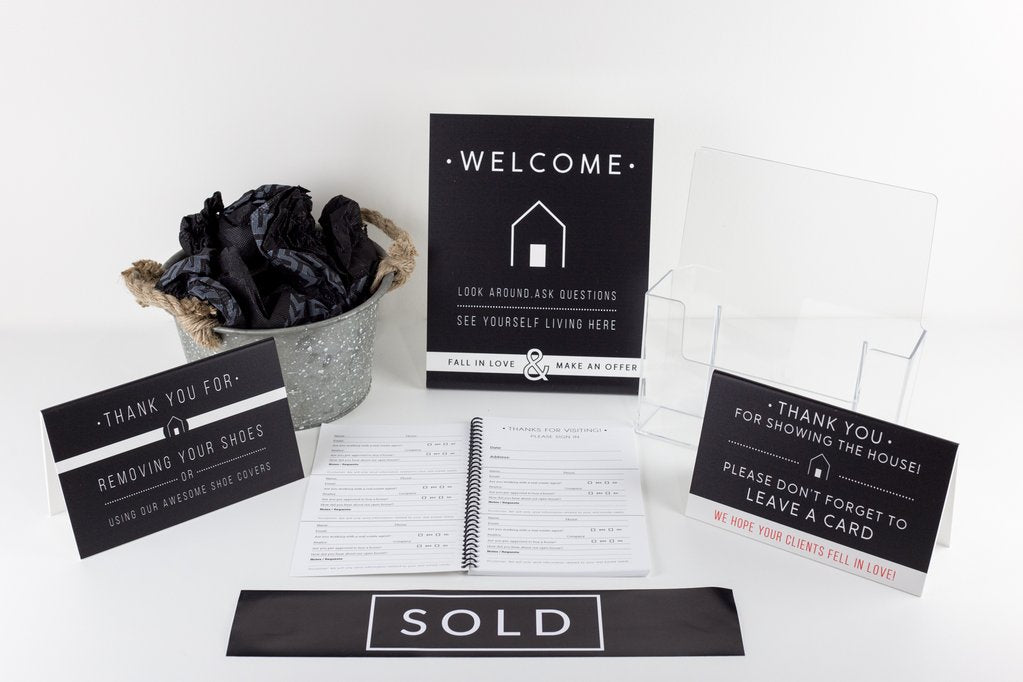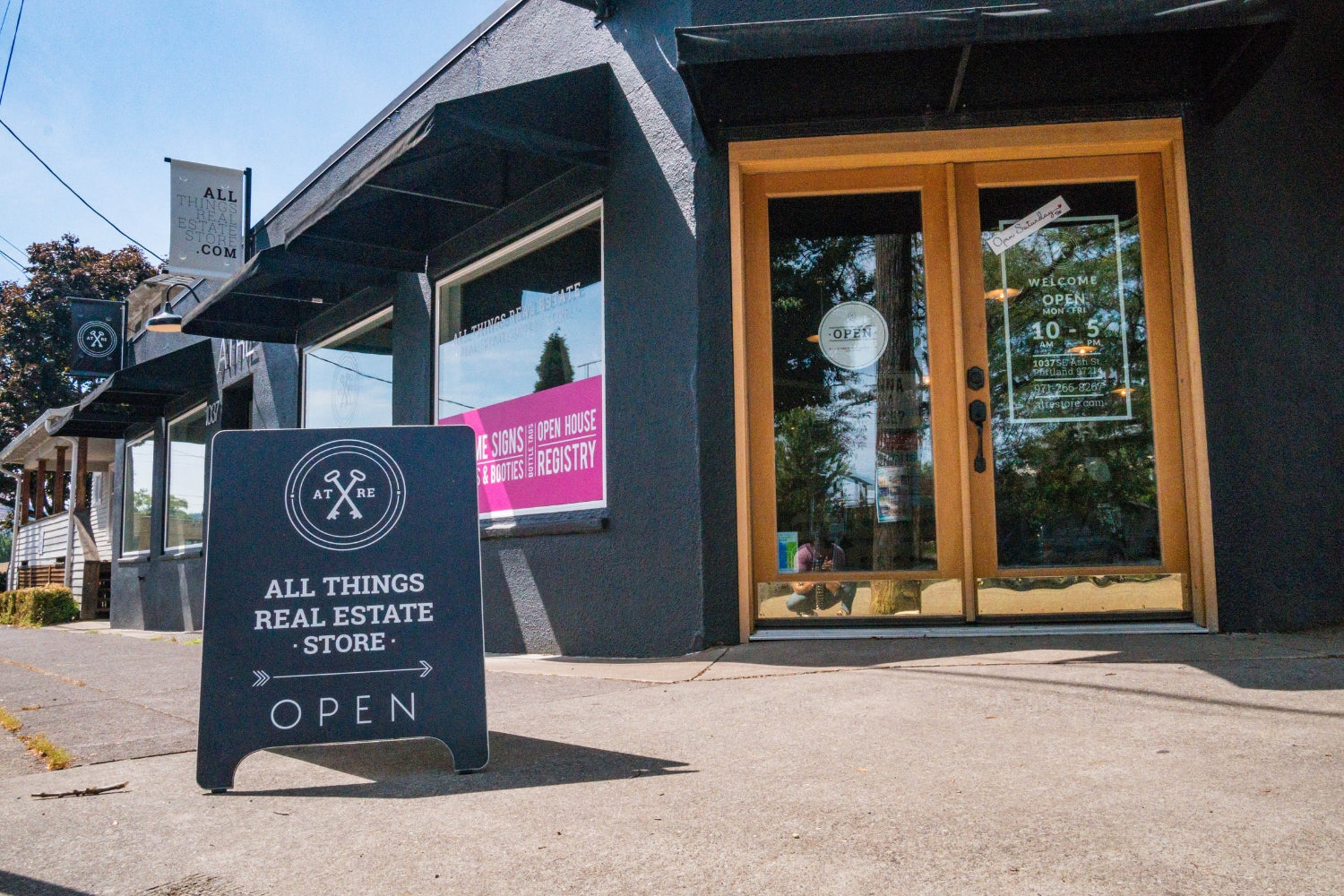Successful products often solve meaningful problems for customers. It’s no wonder, then, why so many origin stories begin with an entrepreneur’s first-hand experience of an existing problem.
For Tracey Hicks, founder of All Things Real Estate, that lightbulb moment came after watching her clients struggle to recall homes they were considering. After 13 years as a professional realtor, Tracey knew that keeping track of different properties was a challenge even for highly organized home buyers.
“I had one client who kept asking me to visit houses that we had literally been inside of,” says Tracey. “I know it's hard for clients to keep track of each house, especially when you visit five or six in a day—they all blend together. You kind of like this part about this house, but didn't like that, and you just can't remember.”
That’s when Tracey realized that a notebook to help clients keep track of houses could provide a simple, easy-to-use solution. She created the first version for an existing client, and after using it, realized the notebook could double as a marketing tool for other realtors. She added space to insert a business card in the front cover, and the Homebuyer Journal was ready for business.

While getting an initial version of the Homebuyer Journal out to the world was relatively painless, distribution didn’t come quite as easily. It’s even more challenging to market your product when you need to explain what precise problem it solves, so Tracey decided to expand into a full line of real estate marketing products—including signs her clients already knew they needed—to make it easier to attract clients and get them in the door.

In the early days, Tracey and her business partner rented a small retail space that doubled as their office. But with a new hire joining the team and a wide-ranging line of products to carry, things got crowded quickly.
“Once we started getting product in there, plus the three of us, space was filling up. We ran out of room in less than a year in that space. I lucked out, and due to some permitting issues, the owner was asking tenants to leave for six months. I was like, ‘We're a retail store, where are we going to go?’”
That’s when Tracey first heard about Shopify Capital.
Funding the next move
Since Tracey was no stranger to shopping for spaces, she dove into the project of finding a new retail location. However, moving an entire retail business to a new address isn’t cheap, and she hadn’t had long to plan for the expense. Just as Tracey was getting into the logistics, she saw a notification from Shopify Capital.
“Right around the time of the move money was low, because we were putting every penny back into the business,” says Tracey. “We found a new retail location, and the Shopify Capital offer showed up in my inbox, literally right when we needed to move.”
The offer helped fund All Things Real Estate’s next move and provided essential financing for other investments the business needed to make in order to keep up with growing demand.
“That first advance we took helped to move us, and to do some remodeling and buy more products. It was perfect timing, and it went really smoothly because business was picking up quickly, and it was all paid back automatically via our sales.”

The learning curve for entrepreneurship
All Things Real Estate is Tracey’s first foray into the world of retail, and as with any new venture, there’s a learning curve involved. For Tracey, the first hard lesson came by way of navigating the turbulent nature of seasonal sales trends.
“We definitely have a different financial flow than most retailers. Their busiest time of the year is in December, while that’s our worst time of year because people are taking time off from the real estate market. Nobody's buying houses around Christmas, so agents aren’t buying supplies either. It's just a different timetable and a different market.”
Even so, Tracey hoped that since the businesses did around 90% of their sales online, trends in different regions might balance out over the year. Maybe if things were slow in one city or state, they’d be moving well in another, but that didn’t turn out to be the case.
“Last year, July and August were our biggest months, so we counted on seeing similar results next year. But this year July ended up being one of the worst months that we’ve had,” says Tracey. “Nobody could tell us why. We just literally could not figure it out. We're just realizing that it's going to take two or three good solid years to get a good idea of our annual patterns. That's why I took out another Capital offer.”

For this latest offer, the total amount Tracey was interested in financing was more substantial than before, so she took additional time to compare Shopify Capital with other options.
“I looked at what bank financing would cost us, but I found I just didn't want to deal with the whole process of going through a bank—I wanted to focus on the business,” she says. “A bank loan felt cumbersome, and more restrictive. Shopify Capital has a different mentality to it. It's so easy to do, and the underwriting process is very different. You don't feel like you're being scrutinized.”
“Getting a loan is an emotional process,” Tracey says. “It's hard to have people look at you so closely. Shopify is a company we’re used to working with—they already know our business and can see how we’re doing without us filling in a bunch of forms. That’s why they can more easily offer us the money.”
There are always going to be lessons learned when you’re growing a business, but there’s no reason that learning those lessons should hinder your growth, or cost you weeks of logistics to secure funding.
How does Shopify Capital work?
Shopify Capital helps you access the money—either as a cash advance or a loan—you need to grow your business, without the hassles of traditional business financing. Instead of preparing mountains of paperwork for a bank loan, giving up a stake in your company to an investor, or some other arrangement to be advanced cash, you can get the funding you need for your next steps with a cash advance or loan.
You can choose the amount that’s right for your business from three options, and as long as you’re (automatically) approved, you’ll have access to your funds in a few days. For a cash advance, you’ll pay it back as you make sales by remitting a specific percentage of your daily sales. With a loan, you’ll pay it back based on the rate and terms (use an online loan calculator for an estimate). It’s really that simple.
Financing can unlock new opportunities
Tracey and her team have scaled All Things Real Estate to impressive levels in their first three years of business, but growth certainly came bundled with its own set of challenges. From an unplanned move to an unexpectedly slow month, having access to money when they needed it helped them navigate the inevitable bumps on the road to growing a business.
While Tracey has first-hand experience borrowing to build her business, she’s quick to advise other entrepreneurs that it’s only a good move if you have a plan and a firm understanding of your finances and small business accounting.
“You need to know what your business is doing before taking a loan or a cash advance. If you drop $20,000 into your bank account, that's not sales, and it’s not showing you what your business is doing. If sales are growing every month, but your expenses are growing at the same time, a loan isn't going to help you because you have to figure out what is going on with your business.”
When you do have a plan to scale, and a clear view of how your business is performing, having the right access to funds that work for your business can unlock new opportunities and mean the difference between delaying key investments and accelerating your growth.
Financing a business FAQ
What are the three main types of financing for businesses?
- Debt Financing: Debt financing involves taking out a loan, often from a bank, to cover the cost of starting or running a business.
- Equity Financing: Equity financing involves raising money by selling ownership or equity in the business to investors.
- Crowdfunding: Crowdfunding is a form of financing in which individuals or organizations solicit donations from a large group of people, usually via an online platform, to help fund a project or business venture.
What type of financing is best for a business?
What do I need to finance a small business?
Topics:
Join 446,005 entrepreneurs who already have a head start.
Get free online marketing tips and resources delivered directly to your inbox.
Thanks for subscribing
You’ll start receiving free tips and resources soon. In the meantime, start building your store with a free 14-day trial of Shopify.





